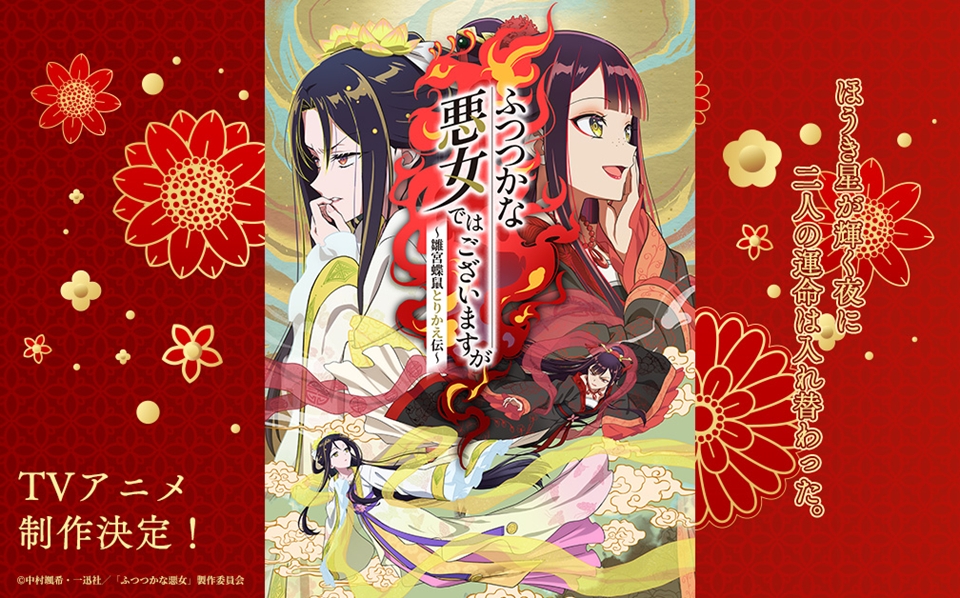There’s so much to love about Hell’s Paradise . The series follows a group of death row convicts who are tasked with journeying to a mysterious yet incredibly dangerous island to obtain the Elixir of Life in order to be pardoned from their crimes. At its core, however, the story is about Gabimaru the Hollow, a legendary ninja who seeks redemption not just for himself, but for a chance to be reunited with his wife. It’s the perfect blend of action, adventure, love, and mystery with characters and designs as intricate and imaginative as they are unforgettable. And it’s all from the mind of Yuji Kaku. Kaku has worked in the manga industry for nearly two decades, taking on roles across the spectrum — from editor, to creating his first one-shots and serialized works, to assisting Tatsuki Fujimoto during the development of Fire Punch . Each of these experiences laid the foundation for what would become his breakout hit, Hell’s Paradise . Years later, the series was adapted into an anime directed by Kaori Makita, quickly becoming a global sensation and introducing his work to audiences worldwide. These days, his work lands him at the center of one of the biggest anime conventions in the world at Anime NYC. Hours before taking the stage to discuss creating his work in front of thousands of fans, we sat down with Kaku to talk about his creative process behind making Hell's Paradise , the upcoming second season of the anime, Ayashimon and a new project in the works. Note: This interview has been edited for clarity. First of all, I would love to know how you are enjoying New York? Yuji Kaku : Unfortunately, we've had a lot of work to do while here, but we've been able to look around the city enough to get a good feel for New York and enjoy it. Glad to hear you’re able to soak in even a little bit of the city! Shifting over to Hell’s Paradise , the editor for Hell’s Paradise Hideaki Sakakibara said that you created backstories for every character in Hell’s Paradise . Why is that level of detail important to you and do you think we might ever see more content that explores the lore or histories of those characters? Kaku : Character development is really fun for me. It’s something that I genuinely enjoy. So yes, every character has a lot of backstories, many more than what was presented in the anime. Because in creating Hell’s Paradise , only the episodes that would move the story along were presented. There's so much more to it. Whether those ever come to the public world or not isn't up to me, but to those in positions of power who make those decisions. But should there be a decision made, there's lots of content that I could create and generate. If you had a favorite character coming out of all those backstories, who would it be? Kaku : This might sound a little cliché, but there’s a bit of me — one aspect or another — in every character. I also made sure not to bring any character into the story that I didn’t love myself. So there isn’t really a favorite. They’re all my favorites. Were there any ideas or story threads that you had that you didn't get to explore but maybe you're still thinking about for future projects? Kaku : So it kind of goes back to what we were talking about initially, about each character having tons of backstories and episodes that weren't presented in the storyline. The main story really focused on the criminals, but the executioners also have very rich stories that haven’t been told yet. Throughout your work, there are always such interesting characters, dichotomies and symbolism. Is there a particular theme or idea you always try to explore in your storytelling, no matter the genre or the series? Kaku : It’s something I’ve been developing recently, but I’m interested in presenting conflicts of opposites and this idea of ambivalence. There are always two sides to the story. There's always a front and back, left and right. Love that. You previously worked as an assistant to Tatsuki Fujimoto, as you detailed in an interview with Manga Plus . Were there any lessons you took from watching how he handled the pressures of weekly serialization that you’ve applied to your own creative process? Kaku : I was an assistant under Fujimoto for a short time before starting Hell’s Paradise . One thing I learned is to always leave room for the unknown. There has to be an element of unpredictability. Discovering what happens next alongside the audience is really an important part of keeping things exciting and fresh. Now, not long after Hell's Paradise wrapped in serialization, you launched Ayashimon in Weekly Shonen Jump. How long had that concept been developing before it finally started being serialized? Kaku : Back then, the timelines were really tight. Prep time was short — probably just over four months, definitely less than five. As for seeds and concepts, I’ve always had a lot of them. Even now, I have plenty of ideas, tiny concepts, beginnings, nuclei. So many are still with me today. You brought two different serialized manga to a close. In your opinion, what's the most important element of creating a satisfying ending? Kaku : In the culture of the Japanese weekly serialization, you can't really start with a defined ending. You have to leave room for the movement of the story. You need to stay flexible and allow yourself to embrace unpredictability and remain true to your philosophy. Even without a defined ending, as long as you keep true to the core, a clear line will be there at the end that you can see. And as long as that clear line is there, the story will take itself to the finish. That transitions to my next question. You recently revealed on social media that you're working on a “single project.” Is there anything you read or experienced that perhaps is inspiring this new work? Kaku : I cannot say much, unfortunately! Well then, at least tell me this: what made you want to share that you were working on this project with fans? Kaku: Social media isn't my thing. It's very easy for me to neglect it. When I realized I hadn't posted anything for over half a year, I thought, “I’d better say something.” So it wasn’t anything deep. I just felt like I had to say something. [laughs] The premiere of Hell’s Paradise Season 2 is getting closer and closer. What’s been your experience with the current production of the next season? Kaku : When it comes to anime production, not just season two, a philosophy of mine is that the animation production staff team should be empowered. They should really find motivation in their own work within their own team. Rather than micromanaging, I want them to feel free to do their best because I believe that ultimately creates the best content. So as far as season two, I’m just as excited as the audience to see how it turns out.


